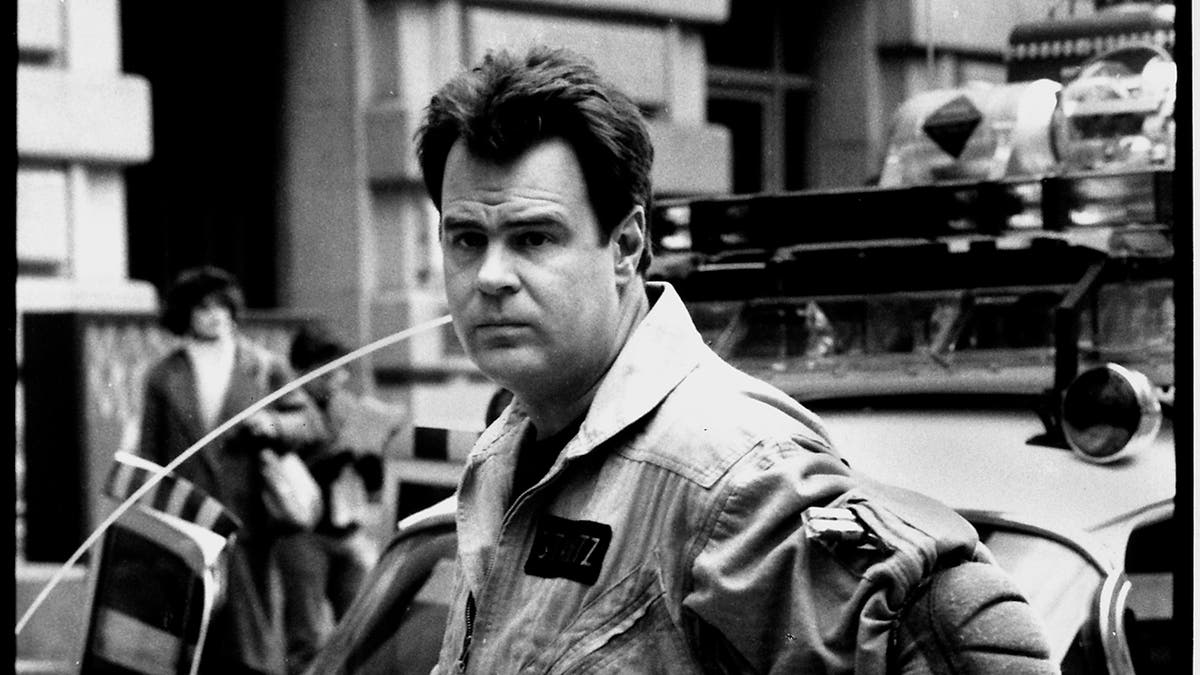Fox News Flash top entertainment headlines for November 3
Fox News Flash top entertainment and celebrity headlines are here.
Dan Aykroyd has spoken out in support of cancel culture when it's appropriate.
The "Ghostbusters" star, 69, said hurtful comedy should be called out for its "hurtfulness."
"There is enough range in humor where you don’t have to go scatological and you don’t have to go pulling any divisive cards to get a laugh," he told the Hollywood Reporter in an interview.
"There is so much in the world to comment on that is outside the realm of offensiveness. As a writer, you can go to other areas and have successful creative endeavors. Scatological humor is fun. It’s easy laughs. But there is more intelligent writing that can happen if you stay away from the offensive material that should be rightly canceled for its hurtfulness," he continued.
"Who can be the subject of an impression today? That’s an area of discussion. Can I do my James Brown imitation? He was one of my best friends. I do his voice pretty good. But maybe I shouldn’t anymore."
CANCEL CULTURE: DAVE CHAPPELLE AND OTHER COMEDIANS WHO HAVE TAKEN SIDES
Aykroyd, who once wore blackface in the 1983 movie "Trading Places," has taken a different position than many of his fellow comedic stars.
Most recently, comedian Dave Chappelle refused to be canceled over comments he made about transgender people during his latest standup special on Netflix titled "The Closer."

Actor Dan Aykroyd offered his opinion on cancel culture. (Kevin Winter/Getty Images)
Last month, Netflix employees and others scheduled a walkout in Los Angeles. The focus was to highlight their objections to the comedy special and the company's handling of it.
Netflix ran into a buzz-saw of criticism not only with the special, but also in how internal memos responded to employees' concerns, including co-CEO Ted Sarandos' assertion that "content on screen doesn’t directly translate to real-world harm."
SHARON STONE TEARS INTO CANCEL CULTURE
Sarandos also wrote that Netflix doesn’t allow titles that are "designed to incite hate or violence, and we don’t believe ‘The Closer’ crosses that line."
In an interview last month, Sarandos said he failed to recognize that "a group of our employees was really hurting," as he told The Wall Street Journal, and that his comment about the effect of TV on viewers was an oversimplification.

Actor Dan Aykroyd while working on the film ‘Ghostbusters II.’ (Robin Platzer/Getty Images)
Comedian and actor Billy Crystal weighed in on cancel culture during an interview with The New York Post.
"It’s becoming a minefield, and I get it," said the star, 73. "I don’t like it, I understand it. … I just keep doing what I’m doing, and that’s all you can do right now."
Chris Rock spoke out against cancel culture, noting that it’s led to "unfunny" and "boring" content from comedians.
DAVID SPADE TALKS ABOUT THE DANGERS OF CANCEL CULTURE FOR COMEDIANS
The stand-up comedian appeared on "The Breakfast Club" in May.
"It’s weird when you’re a comedian because like, when you’re a comedian, when the audience doesn’t laugh, we get the message. You don’t really have to cancel us because we get the message. They’re not laughing," he explained. "Our feelings hurt. When we do something, and people aren’t laughing, we, like, we get it."

The 'Ghostbusters: Afterlife' star joins other comedians and actors who have voiced their opinion about cancel culture. (Photo by Noam Galai/Getty Images)
Meanwhile, Seth Rogen downplayed the impact of cancel culture by arguing that some comedians are going a bit overboard in reckoning with past jokes that have not aged well.
Rogen, 39, appeared on "Good Morning Britain" earlier this year and showed some understanding toward cancel culture proponents, even taking responsibility for "certain jokes" that he understands would not play well today.
CLICK HERE TO GET THE FOX NEWS APP
"There are certain jokes that for sure have not aged well, but I think that's the nature of comedy," Rogen said (via Insider). "I think conceptually those movies are sound, and I think there's a reason they've lasted as far as people still watching and enjoying them today. Jokes are not things that necessarily are built to last."
Fox News' Tyler McCarthy contributed to this report.



























